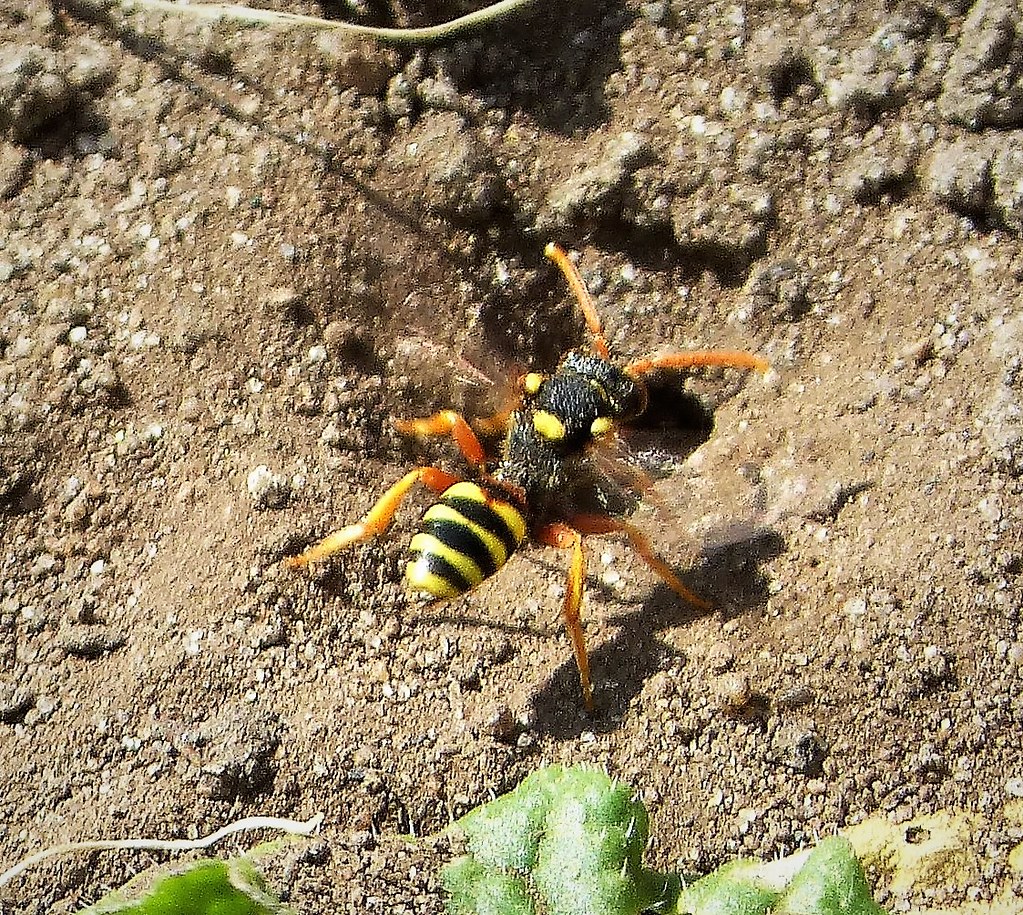Our bees are having a hard time:
Bee protection
One particular variety is having a really hard time indeed:

As reported on Devon Live:
UK’s rarest bee that only lives in Devon is facing extinction
The cliffs provide a perfect habitat, but farming nearby is threatening the bees existence
The rarest bee in the UK, which now only lives in Devon, is under threat of extinction. The six-banded nomad bee is only found on cliffs Prawle point in South Devon. It used to be common across South England but, due to a decline in suitable habitats, it is now only found in this one place.
According to insect charity Buglife, nomad bees are what’s known as ‘cuckoo bees’. Like the famous bird, they lay their eggs in other bees’ nests. When the nomad’s larva hatches it eats the pollen stores that the host bee gathered for its own young. The six-banded nomad bee’s choice host is the long-horned bee (Eucera longicornis). The host is threatened itself, since it only feeds on a few wildflowers in the legume (pea) family such as Everlasting pea and Kidney vetch.
A Buglife spokesman said: “In the Six-banded nomad’s last refuge in South Devon, the soft-cliff habitats provide a warm, south facing surface of soft, exposed soils where many legumes can grow and bees can burrow nest holes – the perfect place for long-horned bees to breed.
“Farm fields have squeezed closer to the cliffs, removing the legume-rich grasslands the long-horned bees depend on. If this continues, the nomad bee faces national extinction. Buglife is looking to help by planting the right kinds of flowers alongside the cliffs, and encouraging farmers to create wildflower margins to feed the long-horned bees and save the six-banded nomad bee.”
UK’s rarest bee that only lives in Devon is facing extinction
.